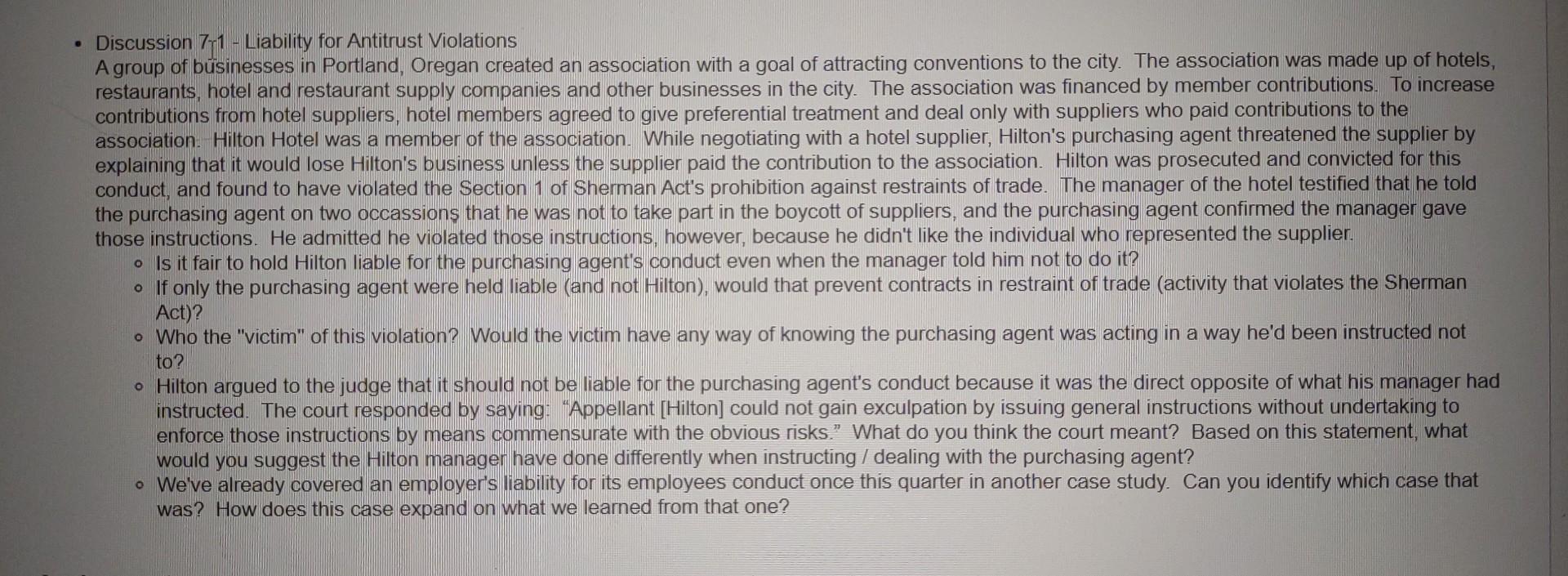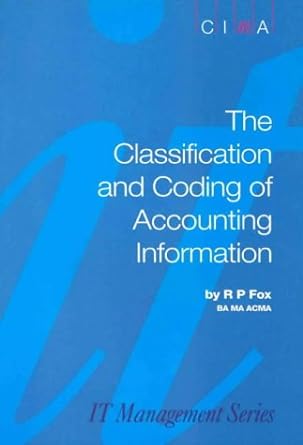Answered step by step
Verified Expert Solution
Question
1 Approved Answer
- Discussion 7-1 - Liability for Antitrust Violations A group of businesses in Portland, Oregan created an association with a goal of attracting conventions to

- Discussion 7-1 - Liability for Antitrust Violations A group of businesses in Portland, Oregan created an association with a goal of attracting conventions to the city. The association was made up of hotels, restaurants, hotel and restaurant supply companies and other businesses in the city. The association was financed by member contributions. To increase contributions from hotel suppliers, hotel members agreed to give preferential treatment and deal only with suppliers who paid contributions to the association. Hilton Hotel was a member of the association. While negotiating with a hotel supplier, Hilton's purchasing agent threatened the supplier by explaining that it would lose Hilton's business unless the supplier paid the contribution to the association. Hilton was prosecuted and convicted for this conduct, and found to have violated the Section 1 of Sherman Act's prohibition against restraints of trade. The manager of the hotel testified that he told the purchasing agent on two occassions that he was not to take part in the boycott of suppliers, and the purchasing agent confirmed the manager gave those instructions. He admitted he violated those instructions, however, because he didn't like the individual who represented the supplier. - Is it fair to hold Hilton liable for the purchasing agent's conduct even when the manager told him not to do it? - If only the purchasing agent were held liable (and not Hilton), would that prevent contracts in restraint of trade (activity that violates the Sherman Act)? - Who the "victim" of this violation? Would the victim have any way of knowing the purchasing agent was acting in a way he'd been instructed not to? - Hilton argued to the judge that it should not be liable for the purchasing agent's conduct because it was the direct opposite of what his manager had instructed. The court responded by saying: "Appellant [Hilton] could not gain exculpation by issuing general instructions without undertaking to enforce those instructions by means commensurate with the obvious risks." What do you think the court meant? Based on this statement, what would you suggest the Hilton manager have done differently when instructing / dealing with the purchasing agent? - We've already covered an employer's liability for its employees conduct once this quarter in another case study. Can you identify which case that was? How does this case expand on what we learned from that one
Step by Step Solution
There are 3 Steps involved in it
Step: 1

Get Instant Access to Expert-Tailored Solutions
See step-by-step solutions with expert insights and AI powered tools for academic success
Step: 2

Step: 3

Ace Your Homework with AI
Get the answers you need in no time with our AI-driven, step-by-step assistance
Get Started


